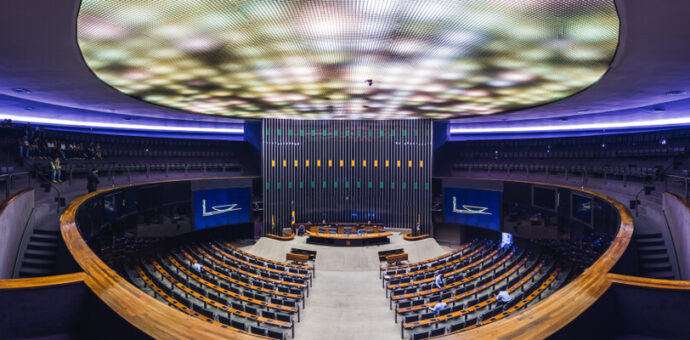Yesterday, November 29, late in the afternoon, the Chamber of Deputies approved Bill 4401/2021, authored by federal deputy Aureo Ribeiro (Solidariedade Party-RJ). The proposal to regulate crypto assets in the country had already been approved, but returned to the Chamber of Deputies after changes on the text during the Senate vote.
“We voted on a historical matter not only for our country but for the world, and Brazil is ahead in debating and regulating this issue”, said the project’s rapporteur, Congressman Expedito Netto (PSD party/RO).
Now, the proposal will be submitted for presidential sanction and will come into force 180 days after publication in the Federal Official Gazette. Expedito Netto emphasized that both the current president, Jair Bolsonaro, and the president-elect, Luiz Inácio Lula da Silva, support the project’s approval.
Os deputados discutem as mudanças feitas pelos senadores no texto do PL 4401/21 que trata da inclusão das moedas virtuais e programas de milhagem aéreas na definição de "arranjos de pagamento" sob a supervisão do Banco Central.
— Câmara dos Deputados (@camaradeputados) November 29, 2022
Check out the main points of the Bill
According to the text of the Bill, crypto assets will now be considered a “digital representation of value, which can be traded or transferred by electronic means and used to make payments or for investment purposes”.
The proposition also establishes a new type of fraud, provided by the Penal Code, for those who “organize, manage, offer or distribute wallets or intermediate operations involving virtual assets, securities or any financial assets to obtain illicit advantage to the detriment of others, inducing or keeping someone in error, through artifice, ruse or any other fraudulent means”. The penalty is four to eight years in prison.
The segregation of assets, which was one of the most controversial topics of the Bill, was rejected by the deputies, who considered that this could prevent the development of the market in Brazil. Likewise, the elimination of taxes for those engaged in mining activities was also rejected.
The Bill establishes that crypto assets exchanges must have a National Register of Legal Entities and representation in Brazil, and that companies must share more information with government agencies. The deadline to adapt to the new rules is six months.
The Securities and Exchange Commission (CVM) is expected to be responsible for regulating crypto assets as securities, and the Central Bank for other types of assets and approving the operation of exchanges.
Do you want to learn more about the subject? Then, check out the complete content about regulation of crypto assets in Brazil and worldwide!







